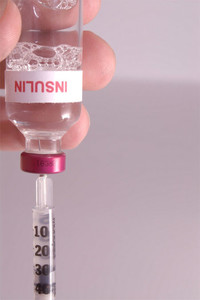Generics giant Mylan announced on 13 February 2013 that it had entered into an agreement with India-based Biocon to develop and market Biocon’s biosimilar versions of three insulin analogue products.
The insulin blockbusters in their targets are Eli Lilly’s Humalog (insulin lispro), Novo Nordisk’s NovoLog (insulin aspart) and Sanofi’s Lantus (insulin glargine). The three products had combined sales of approximately US$11.5 billion in 2012.
Under the terms of the agreement, US-based Mylan will have the rights to develop and market Biocon’s biosimilar versions of the three insulin analogue products, with both companies sharing development, capital and certain other costs to bring the products to market.
Mylan CEO, Ms Heather Bresch, said that ‘importantly, we believe we have the opportunity to be one of the first generic entrants in developed markets into the rapidly growing diabetes area, helping to address unmet needs and reduce the economic burden to those battling the disease and to the global healthcare system’.
Biocon has already had positive results from a phase I study with its biosimilar insulin glargine [1]. Biocon has also entered into another deal with Malaysia-based Chemical Company of Malaysia Berhad (CCM), giving CCM rights to market, sell and distribute a range of Biocon’s insulin products in Malaysia and Brunei [2].
This latest deal gives Mylan exclusive rights to market Biocon’s biosimilar insulins in Australia, Canada, the EU, the European Free Trade Association countries, New Zealand and the US through a profit-share arrangement with Biocon. Mylan will also have co-exclusive commercialization rights with Biocon in certain other markets around the world.
Biocon has been looking for another partner for its biosimilar insulin portfolio since its deal with pharma giant Pfizer fell through in March 2012 due to ‘differing priorities’ [3]. Mylan and Biocon first established a drug development partnership three years ago and the companies expect this collaboration to further strengthen their existing successful partnership.
Editor’s comment
It should be noted that biosimilars approved outside of the EU may not have as strict a regulatory process as is required by EMA. EMA regulatory requirements ensure the same high standards of quality, safety and efficacy for biosimilars as for originator biologicals, and also include a rigorous comparability exercise with the reference product.
Related articles
Biocon announces Malaysia manufacturing plant
Pfizer and India-based Biocon make biosimilar insulin deal
References
1. GaBI Online - Generics and Biosimilars Initiative. Positive results from phase I study with biosimilar insulin glargine [www.gabionline.net]. Mol, Belgium: Pro Pharma Communications International; [cited 2013 Mar 1]. Available from: www.gabionline.net/Biosimilars/Research/Positive-results-from-phase-I-study-with-biosimilar-insulin-glargine
2. GaBI Online - Generics and Biosimilars Initiative. CCM and Biocon make biosimilar insulin deal [www.gabionline.net]. Mol, Belgium: Pro Pharma Communications International; [cited 2013 Mar 1]. Available from: www.gabionline.net/Biosimilars/News/CCM-and-Biocon-make-biosimilar-insulin-deal
3. GaBI Online - Generics and Biosimilars Initiative. Pfizer and Biocon’s biosimilar insulin deal is off [www.gabionline.net]. Mol, Belgium: Pro Pharma Communications International; [cited 2013 Mar 1]. Available from: www.gabionline.net/Biosimilars/News/Pfizer-and-Biocon-s-biosimilar-insulin-deal-is-off
Permission granted to reproduce for personal and educational use only. All other reproduction, copy or reprinting of all or part of any ‘Content’ found on this website is strictly prohibited without the prior consent of the publisher. Contact the publisher to obtain permission before redistributing.








 0
0











Post your comment